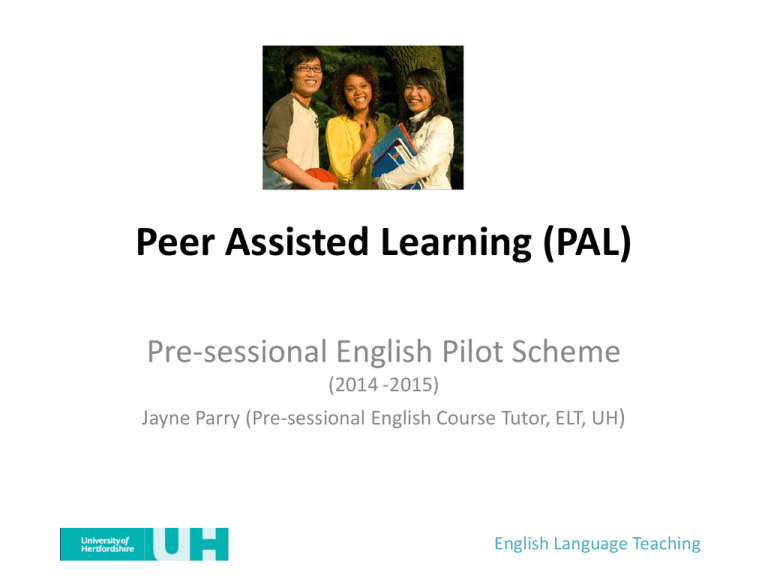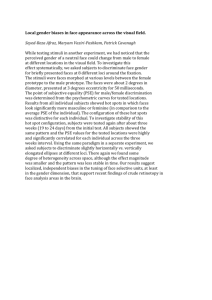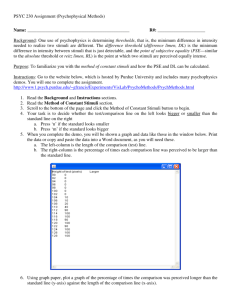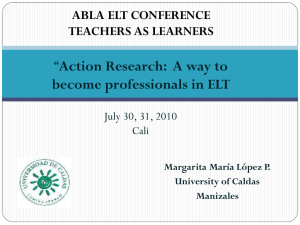sessional English Course
advertisement

Peer Assisted Learning (PAL) Pre-sessional English Pilot Scheme (2014 -2015) Jayne Parry (Pre-sessional English Course Tutor, ELT, UH) English Language Teaching Introduction International students on UH English Language Teaching (ELT) preparatory courses frequently express a desire to meet with expert speakers and writers of academic English in order to enhance their learning experience. Second language (L2) learning is enhanced by interaction with the expert user (Pica, Lincoln-Porter, Paninos and Linnell, 1996). Students are required to join communities of practice (Lave and Wenger,1991; Lave and Wenger, 1998). PAL Model: at Birmingham university PhD students are recruited as Teaching Assistants (TAs) from a number of disciplines as appropriate to the range of progression degrees of students on the PSE course. Humanities small project funding (May 2014). English Language Teaching PAL scheme aims: To provide international students on the PSE course with more interaction with other international and home students. Development of PSE students’ seminar skills. Improvement of the subject specific language/content of the PSE preparatory course. Introduction of possible role models from within the subject schools. Enhancement of the graduate skills and employability of the Peer Assistants through their experience of working with international students from a wide range of educational backgrounds and subject experience. English Language Teaching The PAL Pilot Scheme Peer Assistants (PAs): Eight Masters and PhD volunteers ( 4 female and 4 male). Represented a variety of subject areas: MSc Management x 3 MSc Marketing x 1 MSc Computer Science x 1 MA HRM x 1 PhD Engineering x 2 Nationalities included: Vietnamese, Pakistan, Chinese, Nigerian, Ghanaian, Indian, English Language Teaching After an initial day’s training PAs were allocated to a seminar skills class (2 hours contact time). Where possible students in these classes shared their subject field. PSE lecturers provided support and guidance to PAs. English Language Teaching Evaluation of Pilot Scheme Students’ comments on end of course feedback questionnaire. Assessment of students’ preparation for and participation in seminars. Academic Behavioural Confidence Scale (Sanders and Sanders , 2006). PA evaluation discussions of their role and class experience. Lecturers’ comments. English Language Teaching Lecturer’s comments on PA role in class: Listening and giving feedback to second group (while I did the first group) - during the second lesson we switched groups. Speaking to students regarding her experience as former PSE student and now finishing her masters (in HR). It was a very positive experience to have another listener/monitor for seminar work due to time constraints, particularly at this intense point in the course. I prepared a mind-map on the board of all points to consider during seminar and asked her to check if students did not follow input. Students responded well to this PA and she contributed a fresh angle to the group dynamic at this stage. English Language Teaching Evaluation of PAL Pilot Scheme Peer Assistants’ comments: English Language Teaching Student feedback: Friendly and willing to answer questions She gave me a lot of helpful suggestions. She was enthusiastic about our subjects. We feel comfortable with this teacher More hopeful for us. English Language Teaching Student feedback: Excellent, they can tell us how to run a seminar also they can share a lot of experience with us. Help us avoid common mistakes. I don’t like because he cannot join in very well if he doesn’t attend each class. I I think the PA should be more attendant to students, helping their doubts on to write an essay. For example, because this could help students and teachers at the same time. English Language Teaching Conclusion: PAL in small groups enables more students to benefit from feedback and advice from an expert language user. PAs were able to encourage the use of subject specific language and offer an insight into how seminars are conducted within their schools. PAs acted as role models both in terms of academic language use and study skills, and as an exemplar of the next stage in the student journey. PAs were able to demonstrate their graduate attributes and enhance their employability (voluntary work acknowledged with certificate). Further research into the role of the PA is needed which could enhance the development of PA training and the PAL approach. The scheme is being considered for further support from the School of Humanities so that it can run not only in the PSE course but also in other ELT programmes. English Language Teaching References Lave, J. & Wenger, E. (1991) Situated Learning. Legitimate peripheral participation, Cambridge: University of Cambridge Press. Pica, T., Lincoln-Porter, F., Paninos, D. & Linnell, J. (1996) Learner-learner interaction as a resource for language learning. TESOL Quarterly, 30 p. 59-84. Sanders, P. & Sanders, L. (2006) Understanding Academic Confidence. Psychology Teaching Review, 12 p. 29-42 Wenger, E. (1998) Communities of practice: learning, meaning, and identity. Cambridge: University Press. English Language Teaching Acknowledgements Gill Andreanoff and Gill Knibbs (Projects Coordinator, Outreach and Widening Participation) provided much advice regarding recruitment, training and project evaluation methods. Further support and guidance was provided by Janette Bradley (Associate Dean of Learning & Teaching, Humanities), Nicole Duplain (Head of Languages & ELT), Liz Wray (ELT Co-ordinator), and Sylvie Templeman ( Peer Mentor Coordinator, Languages). English Language Teaching





